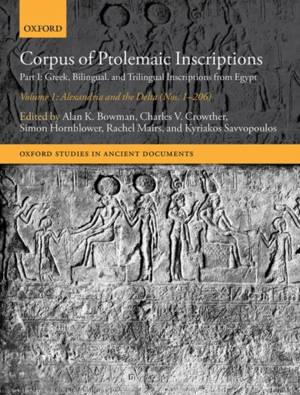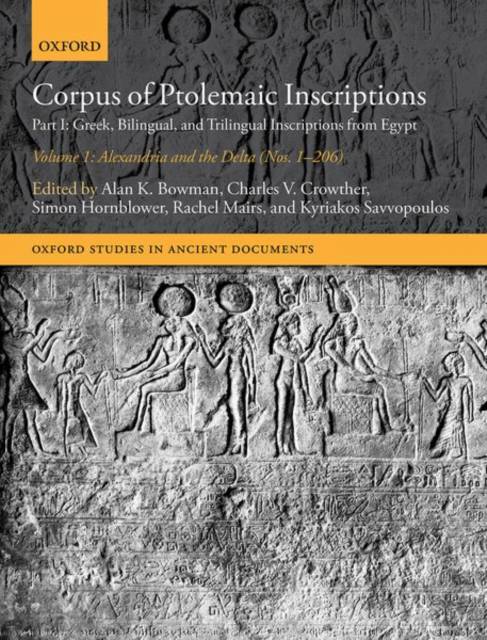
- Afhalen na 1 uur in een winkel met voorraad
- Gratis thuislevering in België vanaf € 30
- Ruim aanbod met 7 miljoen producten
- Afhalen na 1 uur in een winkel met voorraad
- Gratis thuislevering in België vanaf € 30
- Ruim aanbod met 7 miljoen producten
Zoeken
Corpus of Ptolemaic Inscriptions Volume 1, Alexandria and the Delta (Nos. 1-206)
Part I: Greek, Bilingual, and Trilingual Inscriptions from Egypt
€ 298,45
+ 596 punten
Omschrijving
This is the first of three volumes of a Corpus publication of the Greek, bilingual and trilingual inscriptions of Ptolemaic Egypt covering the period between Alexander's conquest in 332 BC and the fall of Alexandria to the Romans in 30 BC. The Corpus offers scholarly editions, with translations, full descriptions and supporting commentaries, of more than 650 inscribed documents, of which 206, from Alexandria and the region of the Nile Delta, fall within this first volume. The inscriptions in the Corpus range in scope and significance from major public monuments such as the trilingual Rosetta Stone to private dedicatory plaques and funerary notices. They reflect almost every aspect of public and private life in Hellenistic Egypt: civic, royal and priestly decrees, letters and petitions, royal and private dedications to kings and deities, as well as pilgrimage notices, hymns and epigrams. The inscriptions in the Corpus are drawn from the entire Ptolemaic Kingdom of Egypt, from Alexandria and the Egyptian Delta, through the Fayum, along the Nile Valley, to Upper Egypt, and across the Eastern and Western Deserts. The Corpus supersedes older publications and other partial collections organised by specific region or theme, and offers for the first time a full picture of the Greek and multilingual epigraphic landscape of the Ptolemaic period. It will be an indispensable resource for new and continuing research into the history, society and culture of Ptolemaic Egypt and the wider Hellenistic world.
Specificaties
Betrokkenen
- Uitgeverij:
Inhoud
- Aantal bladzijden:
- 576
- Taal:
- Engels
- Reeks:
Eigenschappen
- Productcode (EAN):
- 9780198860495
- Verschijningsdatum:
- 15/06/2021
- Uitvoering:
- Hardcover
- Formaat:
- Genaaid
- Afmetingen:
- 193 mm x 249 mm
- Gewicht:
- 1397 g

Alleen bij Standaard Boekhandel
+ 596 punten op je klantenkaart van Standaard Boekhandel
Beoordelingen
We publiceren alleen reviews die voldoen aan de voorwaarden voor reviews. Bekijk onze voorwaarden voor reviews.






